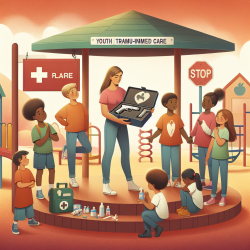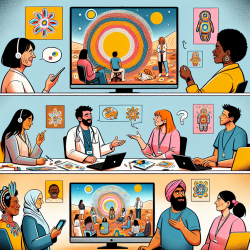The concept of medical tourism has gained traction globally as countries seek to boost their economies by attracting international patients for elective medical care. However, the implications of this trend on health equity remain a subject of debate. A recent exploratory qualitative case study titled "What does the development of medical tourism in Barbados hold for health equity?" sheds light on this issue, providing valuable insights for healthcare practitioners and policymakers.
The Promise and Peril of Medical Tourism
Barbados, with its universal public healthcare system and thriving tourism industry, is poised to expand its medical tourism sector. This development promises economic benefits but also raises concerns about its impact on health equity. The study conducted interviews with 50 stakeholders, including government officials and healthcare professionals, to understand their perspectives on this issue.
Direct and Indirect Impacts on Health Equity
The findings indicate that medical tourism could potentially improve access to healthcare for Barbadians by enhancing infrastructure and facilities. However, there is a risk that resources could be diverted from the public sector to support private medical tourism ventures, potentially reducing access for local residents.
Indirectly, medical tourism could create employment opportunities and generate tax revenues that could be reinvested in public health. Yet, stakeholders caution that these benefits may not materialize without careful regulation and policy intervention.
Lessons for Practitioners and Policymakers
The study highlights several key considerations for those involved in developing or regulating medical tourism:
- Regulation and Oversight: Establishing clear regulations to ensure that medical tourism does not compromise public healthcare resources is crucial. Policies should mandate that any new facilities benefit the local population.
- Equitable Access: Consider policies that allow local residents to access new facilities either through private payment or allocated public healthcare slots.
- Revenue Reinvestment: Ensure that tax revenues from medical tourism are used to strengthen public health systems and address social determinants of health.
- Workforce Management: Develop strategies to prevent the migration of healthcare workers from the public sector to private medical tourism facilities.
A Call for Further Research
The study underscores the need for ongoing research to monitor the impacts of medical tourism on health equity. Practitioners are encouraged to engage in further studies to explore innovative solutions that balance economic growth with equitable healthcare access.
Conclusion
The development of medical tourism in Barbados presents both opportunities and challenges. By implementing thoughtful policies and conducting further research, stakeholders can ensure that this burgeoning industry contributes positively to health equity rather than exacerbating disparities.
To read the original research paper, please follow this link: What does the development of medical tourism in Barbados hold for health equity? an exploratory qualitative case study.










